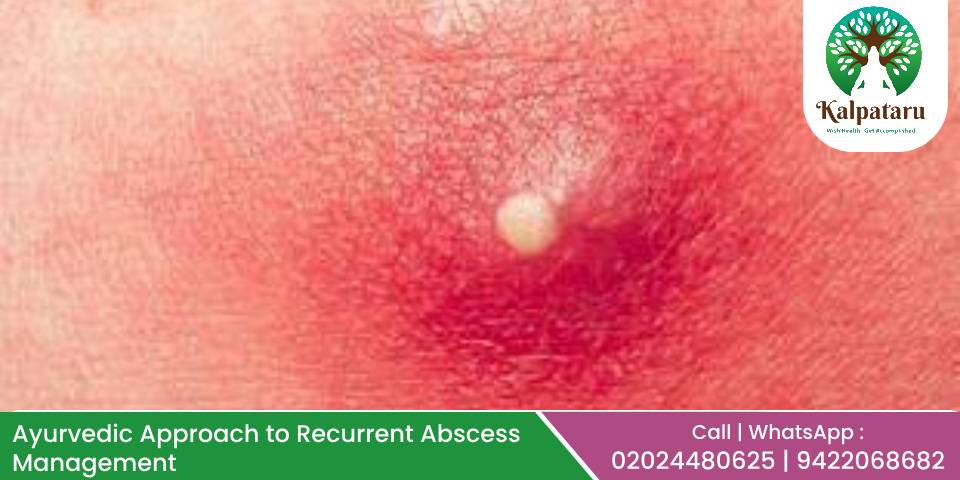Recurrent abscesses can be a painful and frustrating problem for many individuals, particularly those with a disposition towards heat and low immunity. This issue is often exacerbated in individuals with diabetes and tends to become more prominent during the sweltering heat of summer and October. While it may be tempting to deal with abscesses manually, such as bursting them with a needle or pressing them, it’s important to avoid such actions, especially when the abscess is immature. These actions can lead to further infection and complications.
Abscesses can appear in various areas of the body, including the armpits, thighs, hips, anal and vaginal regions, dental sites, and areas around hair roots. Specific types of abscesses, such as fistulae, pilonidal sinuses, or perianal abscesses, can occur in regions related to defecation. To effectively manage and prevent recurrent abscesses, Ayurveda offers a holistic approach that focuses on identifying the root causes of these recurrent infections. This blog will explore the Ayurvedic approach to managing recurrent abscesses.
Understanding the Causes:
Ayurveda emphasizes the importance of finding the underlying causes of recurrent abscesses. Several factors can contribute to their recurrence, including:
- Diet: Consuming spicy and salty foods can increase the body’s heat, making it prone to abscesses.
- Lifestyle: Staying up late, stress, and inadequate sleep can weaken the immune system, making the body susceptible to infections.
- Previous Illnesses: Conditions that induce heat in the body, such as measles, chickenpox, or jaundice, can leave residual heat, increasing the likelihood of abscesses.
The Treatment Approach:
Ayurvedic treatment for recurrent abscesses aims to heal them at an immature stage, preventing the development of mature abscesses. Mature abscesses can be more painful and may lead to deeper infections. The treatment methods include:
- Poultices and local application of herbs ie Leo: Local applications of ingredients like Moringa, Triphala, Panchvalkala, or other herbal formulations can help reduce inflammation and prevent abscesses from maturing.
- Bloodletting (Rakta Mokshana): Bloodletting, a vital Panchakarma treatment, involves drawing blood from a vein or applying leeches (Jalauka) near the abscess. Leeches have a unique ability to absorb impurities, toxins, and deep-seated infections, preventing the spread of infection and promoting the subsiding of the abscess. This treatment can often be a non-surgical alternative to abscess management.
- Oral Medications: Ayurvedic medicines such as Shilajit, Guggul, Nimbasal, Manjishta, and Sariva can be taken orally to reduce the likelihood of recurrent abscesses. These medications help in balancing the body’s internal heat and strengthening the immune system.

